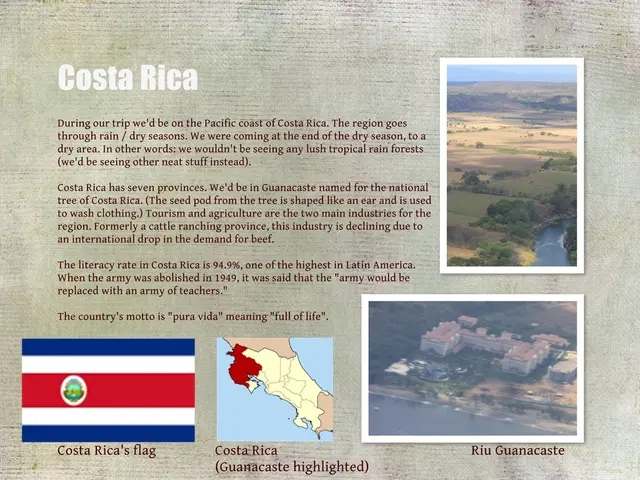Immigration Preferences in Canada's Atlantic Regions for the Year 2025: Which candidates are provincial leaders prioritizing?
The Atlantic Immigration Program (AIP) is a significant pathway for skilled workers and certain international graduates who wish to settle in one of Canada's Atlantic provinces. This marketplace-driven program, designed to support regional economic growth and address jobs shortages, is seeing increased prioritization in 2025.
Foreign nationals, regardless of their current sector of work, can submit Expressions of Interest (EOI) through the PEI PNP. However, provinces like Nova Scotia and Newfoundland and Labrador are prioritizing those currently living and working in the province, particularly in healthcare, social assistance, and construction.
To be eligible for the AIP, a foreign national needs a job offer from a designated employer in Atlantic Canada, and that job offer must be endorsed by the province. The work experience should be in one of the following National Occupational Classification (NOC) Training, Education, Experience and Responsibilities (TEER) categories: TEER 0, TEER 1, TEER 2, TEER 3, or TEER 4.
The educational requirements depend on the NOC TEER of the job offer. For TEER 0 or 1, a one-year post-secondary or higher education is required. For TEER 2, 3, or 4, a high school diploma is sufficient.
Skilled workers need to have worked at least 1,560 hours in the last five years to be eligible for the AIP. Candidates must also have minimum language proficiency in English or French, depending on the NOC TEER of the job offer. CLB/NCLC 5 is required for TEER 0,1,2,3, and CLB/NCLC 4 for TEER 4.
Newfoundland and Labrador has listed in-demand occupations in healthcare, information and communication technology, and Medicare. Meanwhile, Nova Scotia is focusing on healthcare and social assistance, and construction. Prince Edward Island is prioritizing skilled workers in healthcare, construction, and manufacturing.
International student graduates can qualify for the AIP without meeting the work experience requirement if they have a two-year or longer credential from a recognized post-secondary institution in Atlantic Canada, were full-time students for the entire duration of their studies, and lived in one of the Atlantic provinces for at least 16 months during the last two years before graduating.
Unlike Provincial Nominee Programs (PNPs), eligible candidates under the AIP can apply directly to the federal government for PR. The AIP offers benefits such as shorter processing times, individualized settlement services, and access to LMIA-exempt work permits.
In 2025, Canadian provinces have begun prioritizing specific occupations and sectors under the AIP. For instance, New Brunswick has paused its AIP for the rest of the year, while Newfoundland and Labrador has adopted an EOI model for its PNP and AIP, effective February 19, 2025. On a positive note, New Brunswick received an additional 1,500 spots to the NB PNP in June 2025 for those interested in immigrating to the province.
Those who meet the requirements for PR through this program can also apply for a temporary work permit, which allows them to work while their application is being processed. This exemption from the settlement funds requirement applies to foreign nationals already living and working in Canada with a valid work permit.
The goal of the Canadian provincial governments in prioritizing the Atlantic Immigration Program in 2025 is to attract and retain skilled immigrants tailored to the needs of Atlantic Canada, thereby addressing jobs shortages and supporting regional economic growth.
Read also:
- United States tariffs pose a threat to India, necessitating the recruitment of adept negotiators or strategists, similar to those who had influenced Trump's decisions.
- Weekly happenings in the German Federal Parliament (Bundestag)
- Massive 8.8 earthquake hits off the coast of Russia's Kamchatka Peninsula, prompting Japan to issue a tsunami alert.
- Court petitions to reverse established decision on same-sex marriage legalization







